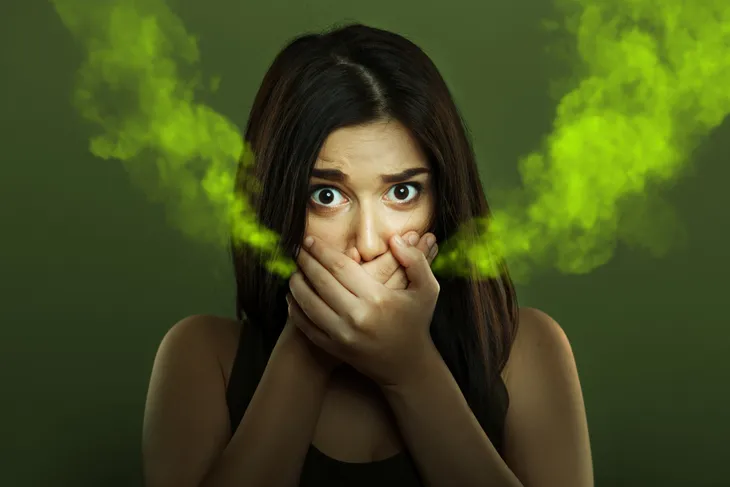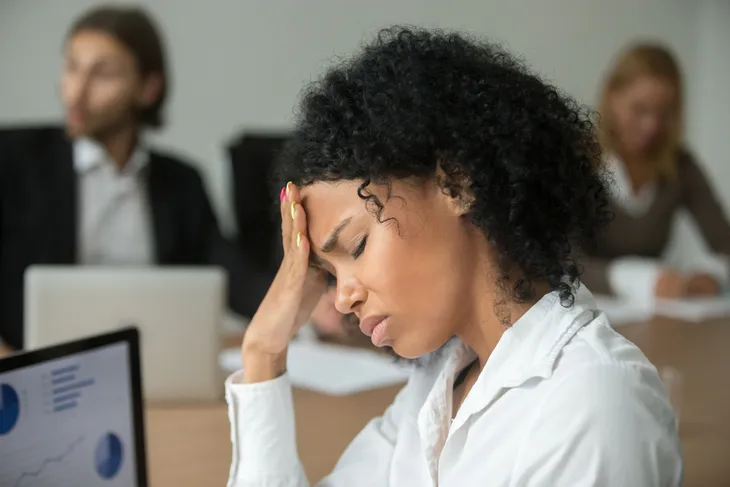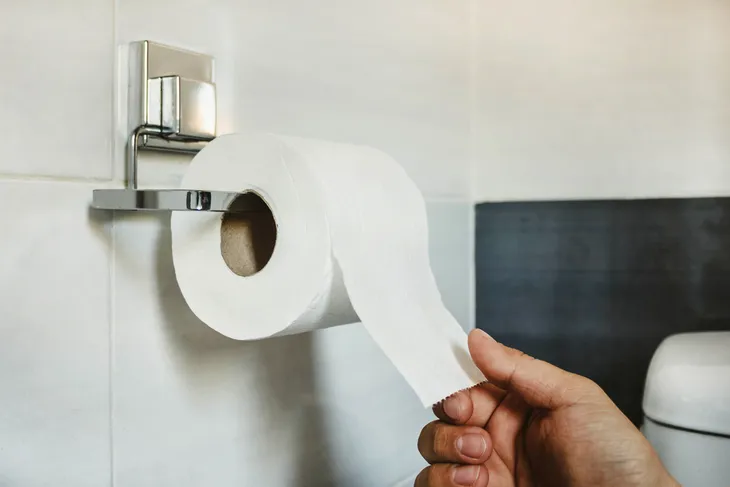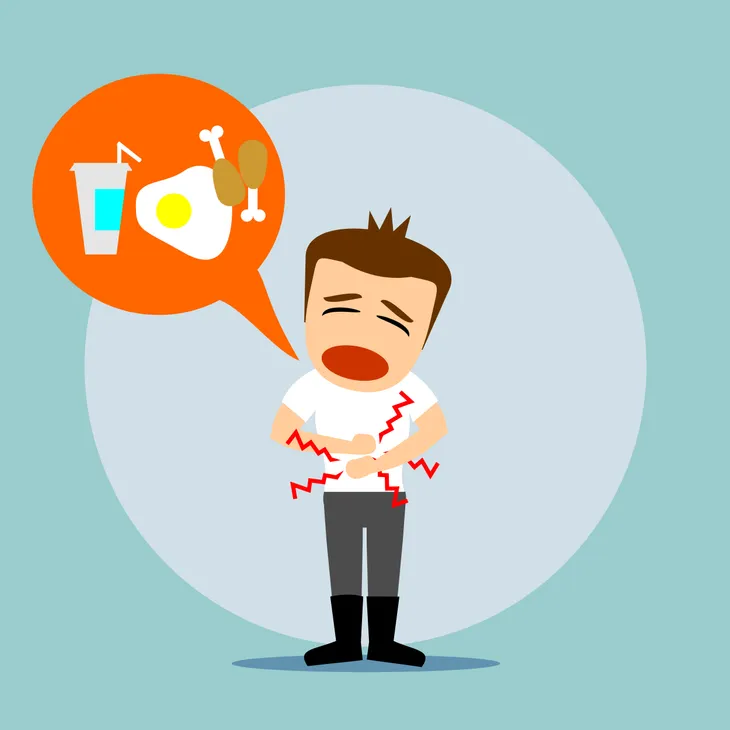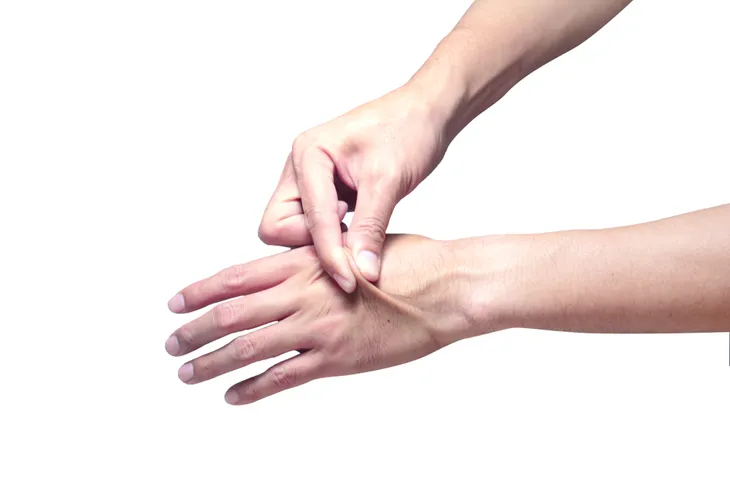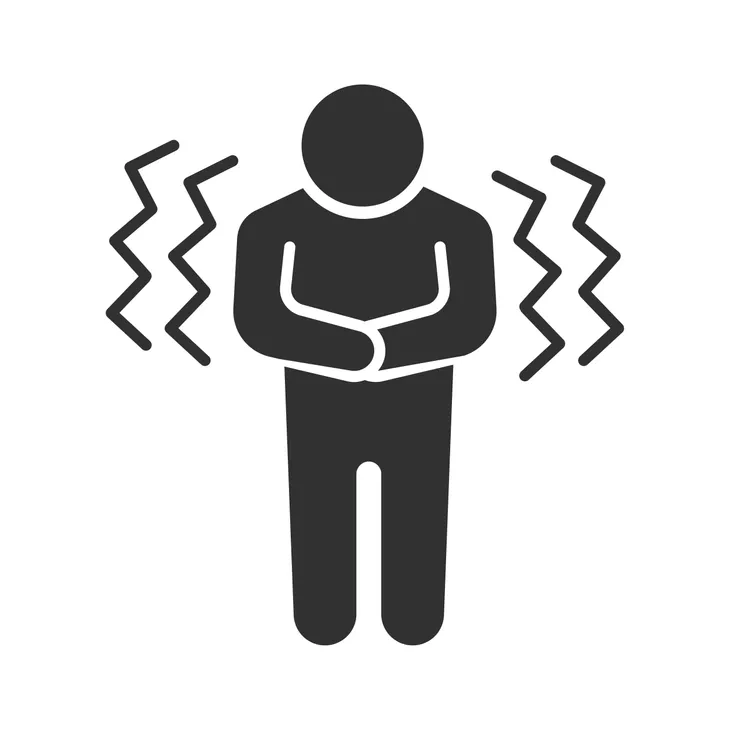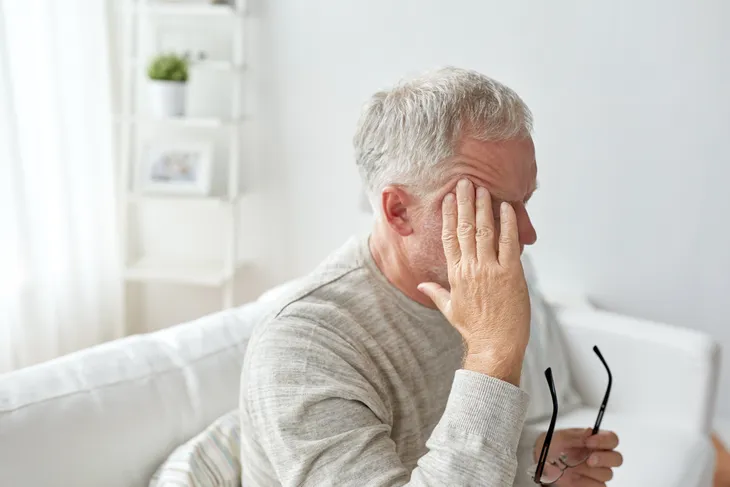When it comes to symptoms of dehydration, it’s not all cut and dry. You may think the only symptom is feeling very thirsty, but that’s only one possible sign – and it could point to another health issue or side effects from medications.
Other times, you might actually be dangerously dehydrated without feeling thirsty at all. So, with the summer heat beating down on us, it’s time to take a closer look at some of the lesser-known signs your body needs liquids – and quickly. Oh, and don’t forget that water bottle when you’re heading out for a walk or to the beach.
Want diet & nutrition content delivered straight to your inbox? Sign up for our exclusive diet & nutrition newsletter!
Having Foul Breath
Yes, bad breath can be a medical condition, also called halitosis. While popping a breath mint may temporarily alleviate this potentially embarrassing issue, so can ensuring you’re properly hydrated, explains EveryDay Health.
The problem is that if you don’t have enough water in your system, it will hinder the amount of saliva you can produce, it explains. Saliva has natural antibacterial properties, but if there’s not enough of it in your mouth it can let (odor-causing) bacteria grow wild, it adds. So, instead of popping a mint that might be filled with sugar or caffeine, you should try drinking a nice glass of water first.
Workouts Are No Sweat
If you’re pumping iron or doing some intense cardio and not breaking a sweat, some might be impressed and say you’re in great shape. However, science might say something else, namely that you’re lacking water in your system.
Bustle.com explains that not drinking enough water can lead to your sweat glands running dry during activity. The primary purpose of sweat is to help regulate body temperature when you’re being active or out in the hot sun. If you don’t have enough liquids in your body, you won’t be able to sweat, which puts you at risk for overheating that comes with its own dangers (namely heat stroke), it adds.
You Have Problems Concentrating
SELF explains that if you’re feeling unusually confused, dehydration could be to blame – although there are several reasons this might occur. However, before rushing off to load up on coffee to perk up, perhaps all you need is a tall glass of water.
It notes that the confusion associated with lack of liquids doesn’t usually come on suddenly, “unless you’re working up a sweat on a hot day.” Meanwhile, Today’s Caregiver explains that dehydration could be a driver of delirium (including confusion and even hallucinations) in seniors, noting that the elderly have less muscle mass where water is primarily stored.
Your Urine Is Darker Than Usual
If you happen to notice that your pee is a darker shade, it could be a sign of a UTI or even kidney stones. But if you have no associated pain or other symptoms, it could be a case of needing to drink more water, explains Healthline.
The source actually has a handy chart to assess the color of your urine in the bowl. If your urine is too transparent, it could mean that you have too much hydration (no action is required, but maybe skip that glass of water in your hand). Whereas amber urine could indicate mild dehydration. “Burnt orange,” as Healthline refers to it, could be a more urgent sign you need to get some water and electrolytes into your system, pronto.
You’re Feeling Hungry Often
Okay, so you’re lacking water in your body – so why would your brain tell you to eat, you’re probably asking? According to Bustle, mild dehydration can sometimes be “masked as feelings of hunger.” The reason for this is that your hypothalamus, which regulates your food and drink cravings, can become confused and have you chomping down snacks instead of drinking a glass of water.
EveryDay Health adds that you might reach for sugary snacks, as low hydration can hinder how the liver disperses stored glucose for energy. You might also get cravings for salty snacks, which could worsen dehydration (but can cue your brain to drink up). However, certain fruits and vegetables have high water content and could aid in hydration.
Your Skin Fails The “Bounceback” Test
One quick way to tell if you’re dehydrated is to pull up some skin on the back of your hand and let it go. If you’re properly hydrated, it will snap back into place quickly, notes SELF. However, if it sort of hesitates before returning to a normal state, it could mean you’re lacking liquids in your system, it adds.
More specifically, “If it stays tented (or resumes its shape more slowly than usual), that’s a really good sign of being dehydrated,” notes the source, which was citing a doctor on the subject. That’s because low water levels lowers your skin’s natural elasticity, it adds.
You’re Experiencing Cramps or Chills
EveryDay Health says that muscle cramps could actually mean you’re dehydrated. That’s because a lack of fluids in the body can cause “heat illness,” which carries symptoms, including cramping, that are more likely while doing activity in the hot sun, it adds. Reach for a drink that contains electrolytes after being active, suggests the source, citing a study on the subject that outlines the advantages.
Meanwhile, while you might avoid cramps, you could end up with chills as a result of dehydration, adds the source. “You may sweat profusely while your skin is cool to the touch,” it notes. A fever can make dehydration worse, making your skin feel hot and dry (and possibly looking flushed.) Using methods such as applying ice and wet cloths (and getting out of the sun) can help until you’re able to seek medical advice, it explains.
Dehydration Can Become a Headache
Along the lines of fevers, chills, and cramps, you might find yourself with a mild headache or even a migraine triggered by dehydration, explains EveryDay Health. It notes that even low-level dehydration could have you reaching for a pain reliever, when you should really be reaching for a glass of water.
Drink a full glass of water and then continue to sip away throughout the day, and it should help alleviate the headache, it adds. If this doesn’t help, it could be a sign that your headache is being caused by something else that you may want to have assessed by a medical professional if it persists (especially if it’s severe).
You’re Gaining Weight Even When Dieting
Have you been dieting or exercising (or both), and the scale seems to still be climbing? This could actually be a sign of dehydration, notes Bustle. It may seem counter to logic, as how can you retain water if you drink hardly any, right? But, there’s some science behind it, adds the source.
It explains that dehydration slows your metabolism, which is the rate that your body burns energy from food. It also impacts your body’s ability to burn off fat and may trick your brain into eating more, as we outlined earlier. So instead of avoiding water when you’re trying to drop pounds, make sure you make it part of your regular routine.
You Develop Illnesses More Often
A lot of people try to load up on vitamins to try and stave off common colds and other relatively minor illnesses. But, Bustle also explains that chronic dehydration – that is, you don’t drink enough water on a regular basis – can weaken your immune system, leaving the door open to infections.
It says dehydration will lower levels of moisture in your mouth, as well as in your nose and throat, which it notes is “vital” to preventing illness. The lymphatic system (which is mostly water) is your body’s natural way of removing toxins and fighting off infections, and it can be aided with proper hydration and exercise, adds VeryWell Health.

